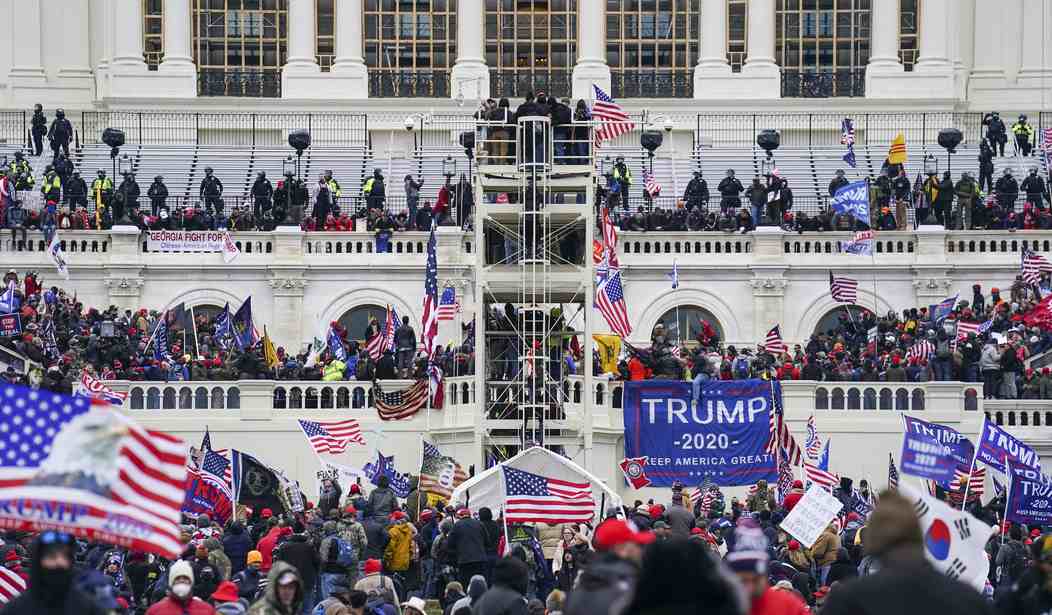Most Americans understand that in our system of justice, a person is “innocent until proven guilty” and that someone cannot be punished if they are not guilty. Bedrock due process, right? Not necessarily.
For years, many judges have punished individuals who appear before them even though they have been determined to be innocent. These judges, all of whom have taken an oath to uphold our Constitution, are basically thumbing their nose at jurors who had determined the government failed to meet its burden of “proof beyond a reasonable doubt.” Unfortunately, this practice has not been halted either by the U.S. Supreme Court or federal law.
Finally, however, a bipartisan group of United States senators are pushing legislation that would prohibit this shameful practice of punishing people for crimes for which they had not been convicted.
The bill is S.601, the “Prohibiting Punishment of Acquitted Conduct Act of 2021.”
Observers might scratch their head and wonder why such a piece of legislation is even needed, considering the clarity with which our Bill of Rights guarantees such fundamental rights as due process, equal protection of the law, and freedom from excessive punishment, among others. But such a law is needed, and it is needed now.
The practice of punishing individuals for crimes not proven results from a decades-long trend of giving judges and prosecutors ever more power over defendants coming before them. Mandatory minimum sentences may be perhaps the most visible reflection of this trend but is certainly not the only one.
Recommended
The problem had not escaped the attention of sitting Supreme Court Justice Clarence Thomas and his two late colleagues, Antonin Scalia and Ruth Bader Ginsburg. In 2014, this trio nearly succeeded in securing the necessary votes to hear a case that could have put an end to the practice of punishment for crimes not committed. In his dissent of not granting cert -- Jones v. United States – Scalia issued one of his trademark blistering opinions, bluntly castigating the majority for failing to “put an end to the unbroken string of cases disregarding” such rights as those guaranteed by the Sixth Amendment to the Constitution, which contains basic guarantees for fair criminal prosecutions.
Scalia found the case particularly offensive because it was not simply a matter of a judge sentencing defendants based on conduct the jury had not considered, but conduct as to which the jury had expressly already acquitted the defendants.
Now, seven years later judges still are not prohibited from doing precisely what those three highly respected Supreme Court justices found to be impermissible under our Constitution.
The so-called Capitol Hill “insurrection” last January 6th presents a perfect picture of how the unchecked power to punish individuals for crimes for which they were charged but not convicted, could be used to hammer them.
Many of those charged for actions on January 6th have been denied bail by federal judges, notwithstanding having no prior criminal record or not themselves charged with crimes of violence. Many face multiple charges, making it easy for government prosecutors to pressure them into pleading to some but not all the listed charges. Without the benefit of S.601 being passed by the Congress and signed into law by President Biden, many of these defendants face the unenviable prospect of having their punishment enhanced by a vindictive judge if they decide to plead to fewer or lesser charges, or if found by a jury to be not guilty of some but not all of the charged offenses.
While the unusual coalition of Scalia, Thomas, and Ginsburg raised a few eyebrows at the time, it drew much needed attention for the need to rein in the unchecked power of judges to unfairly punish individuals brought before them for sentencing.
Whether the key sponsors of S.601, particularly Sens. Durbin (D-IL) and Grassley (R-IA) as the chair and ranking member of the Judiciary Committee, will be able to emulate that feat in the Legislative Branch, is far from certain considering the deep partisan divide currently infecting all of Washington, D.C. If they are able to pull it off, and if Biden then signs the bill into law, at least one important element of fairness and due process that used to undergird our Bill of Rights, will have been restored.
Bob Barr represented Georgia’s Seventh District in the U.S. House of Representatives from 1995 to 2003. He served as the United States Attorney in Atlanta from 1986 to 1990 and was an official with the CIA in the 1970s. He now practices law in Atlanta, Georgia and serves as head of Liberty Guard.

























Join the conversation as a VIP Member